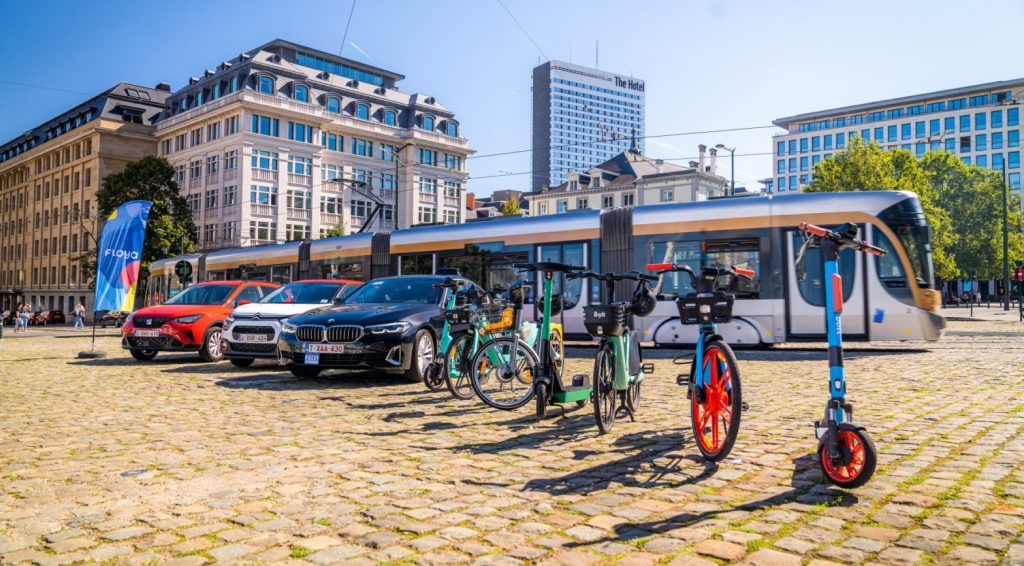More efficient regional mobility thanks to digital technology
Thanks to the development of intelligent transport systems, and especially the centralisation of data collected in this context, a new trend is emerging: the concept of mobility as a service (MaaS).
Brussels Mobility initiated this concept as part of the digital transition objective of the Recovery and Resilience Facility (RRF). As part of the Region’s sustainable urban mobility plan, “Good Move”, this initiative aims to develop a truly intelligent, simpler, and more accessible transport system, while offering a better quality alternative to a private car.
With the Horizon 2030 climate objectives in mind, Brussels Mobility has drawn up its regional mobility plan “Good Move” for the 2020-2030 period. This plan aims to reduce the use of private cars so as to improve the urban environment and the traffic flow. Today, public transport use has returned to pre-COVID levels, and bicycle use has increased exponentially.
The MaaS concept proposes a shift towards mobility based on the use and sharing of mobility services and means of transport. To this end, the project is divided into four parts: the development of infrastructure and digital data; mobility hubs that bring together different means of transport; improving bicycle sharing and integrating it into the public transport supply, and a communication and awareness-raising campaign on the value of using public transport and other transport services. These four elements contribute to the shift towards a multimodal lifestyle, which is the objective of Good Move.
In order to achieve these objectives, the MaaS ecosystem takes the form of an intuitive mobile app, FLOYA. This application exists since 2023, and it summarises and brings together all the available mobility services, integrating travel routes as well as timetable, reservation and payment solutions. It has several partners: the mobility and IT services of the Brussels-Capital Region, the STIB-MIVB and the municipalities.
The first results of this ambitious plan are already visible: in the summer of 2023, Brussels Mobility organised the “Mobility Changers” challenge to raise public awareness of this new trend. 30 Brussels families have taken up the challenge of swapping their private car for an electric bicycle and a mobility budget. The results were promising: all participants have agreed to considerably reduce their car use, 46% of them have considered selling their car and 86% of them have considered buying an electric bicycle. Not only citizens but also the private transport sector will benefit from this change, improving their visibility while receiving added value.
The contribution of the Recovery and Resilience Facility (RRF) has been decisive in creating synergies and partnerships, and above all in the quick progress that has been made. The regional plan is being rolled out during the Belgian presidency of the Council of the European Union, and DG REFORM (Directorate for Structural Reform Support) as well as DG MOVE (Directorate-General for Mobility and Transport) are very interested in this plan. The European Commission is therefore monitoring its development closely, and plans to replicate this strategy in other regions of the EU.




